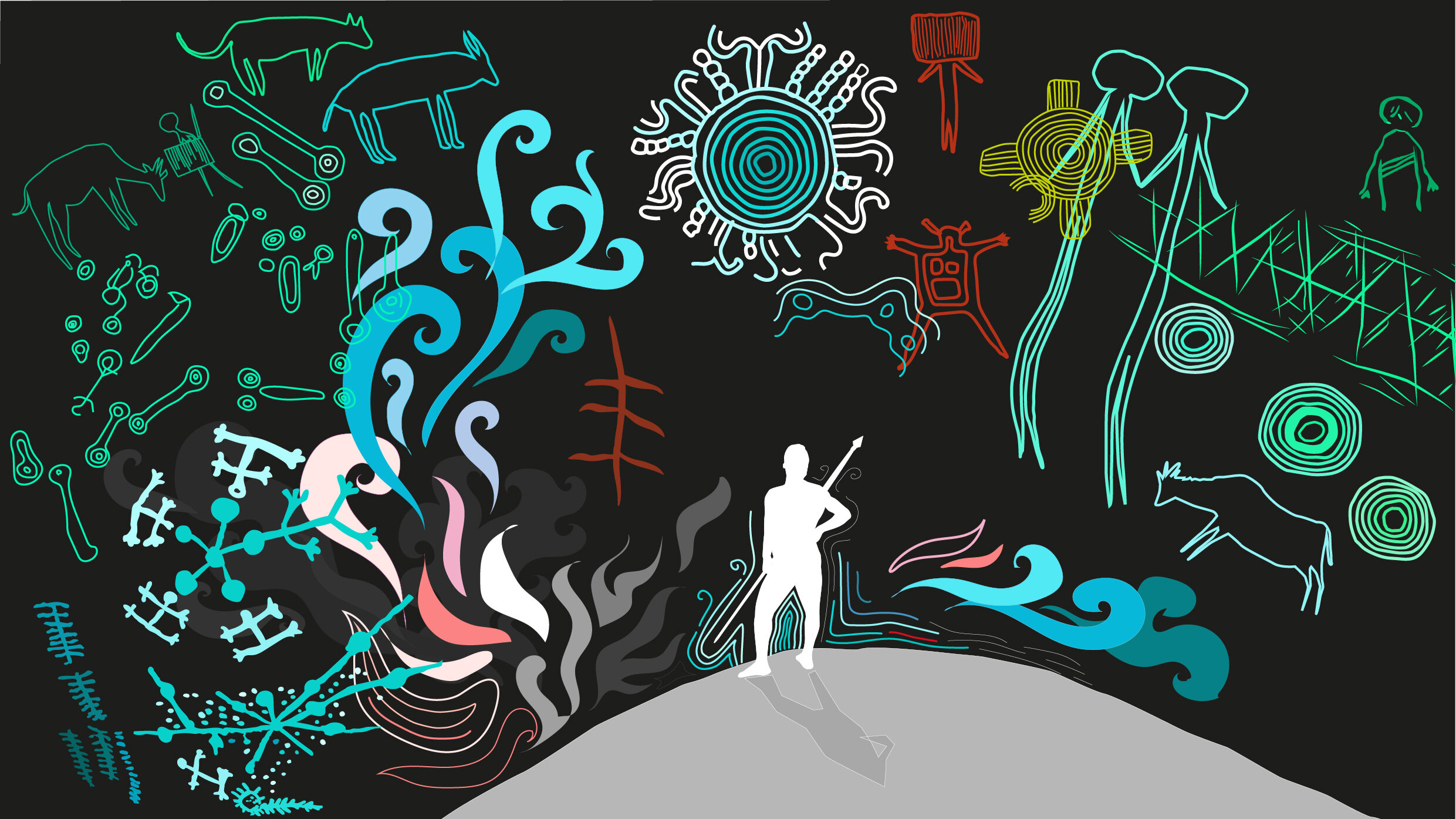
Musings on evolution, humanity, and life
-
The Other Homo Sapiens—
Modern humans weren’t the only Homo sapiens to evolve- just the only sapiens to survive. Who were the other Homo sapiens- and what happened to them?
-

Networks and Neanderthals— do human social structures help explain how we won out against other hominins
One of the biggest mysteries in human evolution is why Homo sapiens won out against every other species. It’s possible we were just smarter but there’s surprisingly weak evidence for that hypothesis. Instead, it may have been our interactions- our large social groups- that gave us the edge.
-

What if the dinosaurs hadn’t gone extinct? Why our world might look very different
Evolutionary starting points limit endpoints. Dinosaurs and mammals had different constraints, so dinosaur extinction didn't just cause a temporary drop in diversity, fundamentally different animals evolved- like humans. Nov. 25 2022, The Conversation.
-

Sea Monsters were real millions of years ago. New fossils tell us about their rise and fall
Giant predatory mosasaurs roamed the saes 66 million years ago. They show how the sudden, unexpected asteroid impact ended the age of the dinosaurs. But the evolution of these huge predators may have begun with another mass extinction.
-

Seven times people discovered the Americas – and how they got there
Before Columbus, the New World was discovered at least six times, starting at least 30,000 years ago.
-

Future Evolution
Studying our past provides hints of our future. We’re likely to live longer, become taller, more slender, more beautiful, more agreeable- and our brains will shrink. Imagine tall, willowy, long-lived supermodels- with the personality of a Golden Retriever. Friendly, maybe not that bright.
-

Stone Age Innovators
Stone Age Innovators. Technologies like fire, spearpoints, and the bow tended to be invented once, then spread rapidly. That suggests a handful of creative people had an outsized influence on the course of human history. Dec 30, 2021, The Conversation
-
Would we still see ourselves as human if the other hominins hadn't gone extinct
Humans are very different from other animals. But until recently, there were other human species, which were far more like us. The division between us and the rest of nature would seem far less clear if they were still here. October 7, 2021, The Conversation.
-

Stoned in the Stone Age
When- and why- did humans start using drugs and alcohol? July 2021, The Conversation.
-

One Incredible Ocean Crossing May have Made Human Evolution Possible
Given tens of millions of years, wildly improbable events- like primates crossing oceans- become highly probable. April 29, 2021. The Conversation.
-

War in the Time of Neanderthals
Neanderthals not only fought wars, they must have been very, very good at it- or they wouldn’t have been able to hold us off for so long. The Conversation, November 2020
-

When did we become fully human? What fossils and DNA tell us about the evolution of modern intelligence
Archaeology suggests that modern human intelligence evolved recently, DNA suggests a more ancient origin. They may track very different things. The Conversation, Sept 2020.
-

How the extinction of ice age mammals forced us to invent civilisation
Why did humans take more than 200,000 years to invent agriculture? Until the extinction of the megafauna, we simply didn’t need to farm.
-

What happened to all the other human species?
Nine human species walked the Earth 300,000 years ago. Now, we’re the only species that remains. What happened to all the others? We did.
-

Evolution tells us we might be the only intelligent life in the universe
Are we alone in the universe? It depends on whether intelligence is a likely evolutionary path, or a rare fluke. Our history is full of unique, one-off events that suggests our evolution was very improbable. The Conversation, October 2019.

